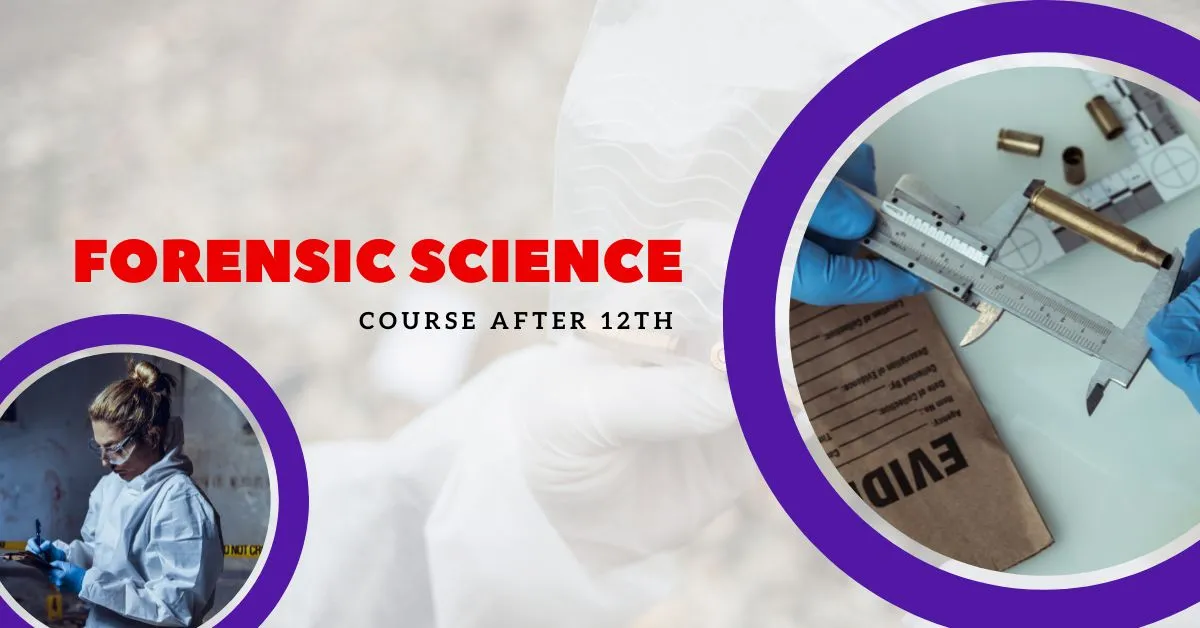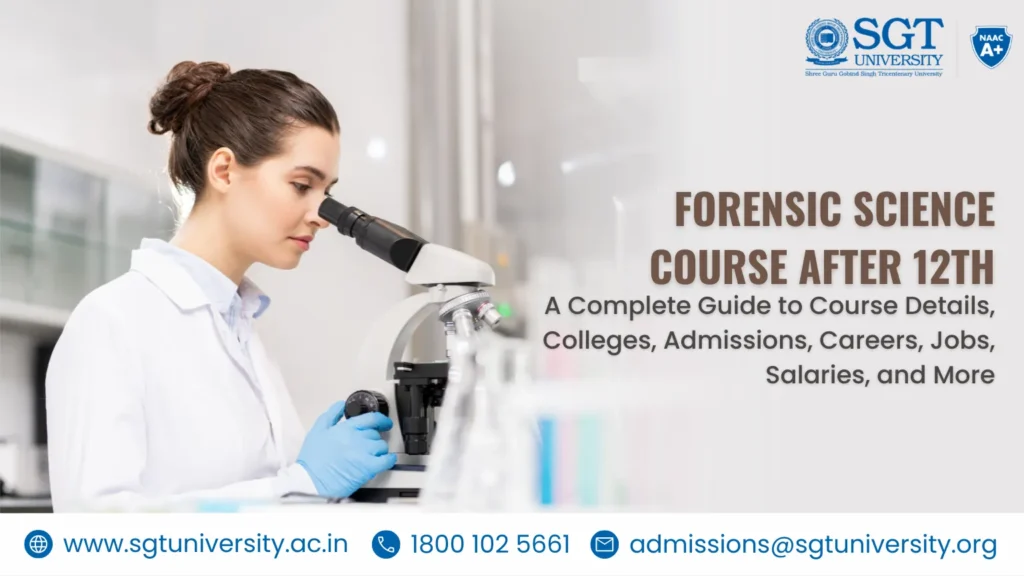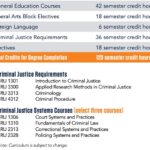My Deep Dive into the World of Forensic Science: A Beginner’s Guide to the Course
Remember those crime shows? The ones where a brilliant scientist, often in a super sleek lab, figures out a whole case from a single strand of hair or a tiny smudge? Yeah, that was me. Sitting on my couch, absolutely captivated. I mean, who wouldn’t be? The drama, the mystery, the "aha!" moment when all the pieces click. That fascination eventually led me to make a big decision: I wanted to study Forensic Science.
It wasn’t just about the TV glam, though. Deep down, I was always curious about how things worked, especially when it came to puzzles. And what’s a crime scene if not the ultimate puzzle? So, I decided to take the leap and enroll in a Forensic Science course. If you’re like me, curious but maybe a little intimidated, let me tell you what it was really like.
From TV Dreams to Lab Reality: My First Impressions
When I first started my Forensic Science degree, I pictured myself immediately dusting for fingerprints or analyzing complex DNA in a high-tech facility. Oh, how wrong I was! The first few weeks were less about crime scenes and more about… well, science fundamentals.
It turns out, before you can solve a mystery, you need a rock-solid understanding of the basic building blocks. We spent a lot of time on Biology, learning about cells, genetics, and all the wonders of the human body. Then came Chemistry, which felt like going back to high school, but with a much cooler purpose. We learned about reactions, elements, and how to identify different substances. And Physics? Yep, that too. Understanding force, motion, and how things interact is surprisingly important when you’re thinking about bullet trajectories or accident reconstructions.
It wasn’t always easy. There were moments I thought, "Is this really it? Where’s the exciting stuff?" But my professors, bless their patient souls, kept reminding us that these foundations were crucial. They were the tools we’d use later to collect and analyze evidence. And they were right.
What You Actually Learn in a Forensic Science Course: The Core Subjects
As I moved past the basics, the course really started to hit its stride. It felt like opening a series of fascinating doors, each leading to a new skill or area of expertise. Here’s a peek at some of the main things you’ll dive into:
1. The Art of the Crime Scene Investigation (CSI)
This was where the "CSI" dream met reality, and it was even better. We didn’t just watch, we did. We learned the meticulous process of securing a scene, documenting everything with photos and sketches, and carefully collecting evidence. It’s not about rushing in; it’s about being incredibly patient and methodical.
I remember one simulation where we had to process a mock crime scene. Every detail mattered: wearing the right protective gear, using specific tools to pick up tiny fibers, and making sure not to contaminate anything. It taught me that attention to detail isn’t just a phrase; it’s the absolute core of forensic work.
2. Unraveling Secrets with Forensic Biology and DNA
This section absolutely blew my mind. We delved into the world of DNA analysis, learning how a tiny sample – a drop of blood, a single hair, skin cells – can tell an entire story. We studied techniques like PCR (Polymerase Chain Reaction) to multiply tiny amounts of DNA, and how to create a DNA profile unique to an individual.
It wasn’t just DNA, though. We also covered serology (identifying bodily fluids), hair and fiber analysis, and even forensic entomology (the study of insects on bodies, which helps determine time of death). It felt like we were becoming biological detectives.
3. The Chemistry of Clues: Toxicology and Trace Evidence
Remember all that chemistry? It came alive here. We learned about forensic toxicology, which is all about identifying drugs, poisons, and other chemicals in biological samples. Imagine figuring out if a specific substance played a role in someone’s death – it’s incredibly complex but so vital.
Then there was trace evidence. This is the stuff you barely notice: paint chips, glass fragments, soil, gunpowder residue. We learned how to analyze these tiny pieces to link suspects to a scene or to each other. It’s like being a detective for invisible clues that can speak volumes.
4. Beyond the Obvious: Fingerprints, Ballistics, and Digital Forensics
The course also introduced me to other specialized areas:
- Fingerprint Analysis: It’s more than just dusting. We learned about different fingerprint patterns, how to lift latent (invisible) prints, and the science behind comparing them.
- Forensic Ballistics: This involves studying firearms and projectiles. We learned how to analyze bullets and casings to determine the type of weapon used and even link it to a specific gun.
- Digital Forensics: In our modern world, this is huge! We learned about recovering data from computers, phones, and other digital devices, even if someone tried to delete it. It’s like being a tech detective, uncovering digital footprints.
The Challenges and Rewards of Studying Forensic Science
Let me be honest: a Forensic Science course isn’t a walk in the park. It’s demanding. You need to be good at science, but also incredibly patient and precise. There’s a lot of memorization, a lot of complex theories, and lab work that requires unwavering focus. There were times I felt overwhelmed, especially during exam season when I had to juggle biology, chemistry, and legal principles.
But the rewards? Oh, they were immense. The feeling when you finally understand a complex concept, or when your lab results match what you expected, is incredibly satisfying. My favorite part was the hands-on lab experience. Actually performing DNA extractions, analyzing unknown powders, or meticulously lifting fingerprints felt like real detective work. It was a constant reminder of why I chose this path.
Who is a Forensic Science Course For?
If you’re reading this and thinking, "Could this be me?" here’s what I think:
- You need to be genuinely curious. Not just about crime, but about how things work, why they happen, and what the scientific explanations are.
- You should have a strong interest in science. Biology, chemistry, and physics will be your best friends.
- Patience and attention to detail are key. This field isn’t for the impatient or those who gloss over small things.
- You need a strong ethical compass. Forensic scientists are objective truth-seekers; their work has real-world consequences.
- Problem-solving skills are a must. Every piece of evidence is a clue in a larger puzzle.
What Comes After? Careers in Forensic Science
A Forensic Science degree opens up more doors than you might think. While many dream of being a "CSI" at a crime scene, the field is much broader:
- Forensic Lab Analyst: Specializing in DNA, toxicology, trace evidence, ballistics, or fingerprints in a dedicated laboratory.
- Crime Scene Investigator (CSI): The ones who go to the scene, collect and document evidence.
- Digital Forensic Examiner: Working with computers and digital devices to uncover evidence.
- Forensic Toxicologist: Focusing specifically on drugs and poisons.
- Forensic Anthropologist/Odontologist: Identifying human remains through bones or teeth.
- Research and Development: Working on new forensic techniques and technologies.
- Teaching and Academia: Training the next generation of forensic scientists.
My Final Thoughts: Is It Worth It?
Absolutely. Studying Forensic Science was one of the most challenging but ultimately most rewarding experiences of my life. It taught me how to think critically, how to approach problems scientifically, and the importance of meticulous work. It wasn’t always flashy like on TV, but the real science, the real dedication to finding the truth, was far more compelling.
If you’re passionate about science, love solving puzzles, and want a career where you can contribute to justice, then seriously consider a Forensic Science course. It’s a path for the curious, the detail-oriented, and those who want to use science to uncover the hidden stories behind the headlines. It might just be the most fascinating journey you ever take.



